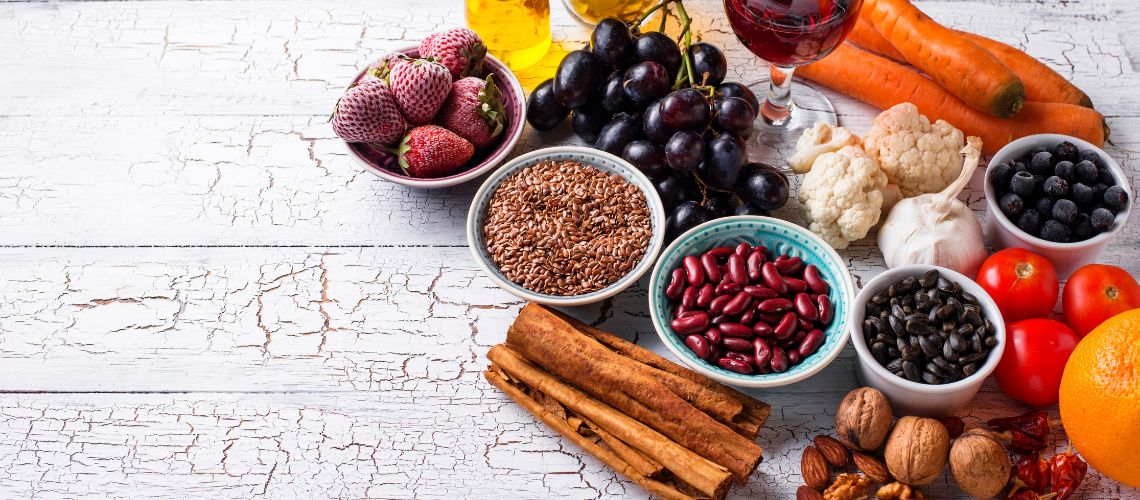
Veganism & Cancer Prevention: Does Going Vegan Lower The Risk of Cancer?
|
Time to read 4 min
|
Time to read 4 min
The search for a cancer-fighting diet is all the rage today.
But the notion that specific foods may help people lower cancer risk is nothing new. People have been suggesting a direct link between diet and cancer as early as, if not before, the 1800s.
Though not without much controversy, it’s becoming more apparent now that nutrition plays a significant role in cancer prevention.

Studies also suggest that healthy eating patterns, like those that tend to be low in red and processed meats, may correlate with a higher overall survival rate for individuals with breast and prostate cancer.
Some cancer types, like mesothelioma, are already in an advanced stage before diagnosis. Understandably, people may feel helpless when diagnosed with mesothelioma.
However, various ways, like lifestyle and dietary changes, may help improve mesothelioma patients’ overall quality of life. Check out free resources at MesotheliomaGroup for more information on how to address mesothelioma symptoms effectively.
Meanwhile, is veganism the least risky diet for cancer? How does a plant-based diet help improve an individual’s heart health? In particular, what are the possible health benefits of veganism for people at risk of aggressive cancer like mesothelioma? How can cancer patients incorporate health-promoting lifestyles and eating habits?
This article explains how a plant-based diet may help lower cancer risk and improve cancer patients’ overall health. This write-up also lists and discusses ways to incorporate good lifestyle and eating habits that may help fight cancer development.
Here are some ways a plant-based diet may help reduce your cancer risk and combat cancer’s development:
While heart cancer cases are scarce, they may still happen due to metastasis or cancer spread from other body parts. For example, mesothelioma, which primarily affects the lining of the lungs, may also affect the heart’s lining.
A diet rich in fruits, vegetables, legumes, and whole grains may help improve overall health and reduce mortality rates for cancer and heart diseases.
Being overweight is a known cancer risk factor.
For example, the International Agency for Research on Cancer (IARC) reported that obesity might be a significant risk factor for colon, kidney, and breast cancer.
Beans, whole grains, and other brightly-colored fruits and vegetables are foods that are rich in phytonutrients.
Here are two essential phytonutrients that may benefit individuals with cancer:
Cereals, fruits, oils, and vegetables, including sweet potatoes, carrots, squash, spinach, green peppers, apricots, and leafy greens, naturally contain carotenoids.
Carotenoid sources are highly pigmented, so look for natural foods that are orange, red, yellow, and green.
Additionally, carotenoids contain compounds like lycopene, beta-carotene, and lutein. These substances may help lower incidences of cancer and heart disease.
Cancer development typically happens when DNA in cells is damaged. This situation may result in the uncontrollable division of aberrant cells, which can invade and damage healthy human tissue.
Radiation, viral infection, and contact with other substances are some factors that might damage cells.
Additionally, the body’s regular metabolism creates cell-damaging oxidants. Antioxidants may help mitigate these destructive processes during cell protection and restoration.
Dark chocolate, avocados, apples with peel on, red cabbage, artichokes, tea, nuts, coffee, and grains contain a high amount of antioxidants.
You don’t need to instantly subscribe to a vegan diet to experience its potential health benefits. Making minor, gradual adjustments for most cancer patients is more achievable and sustainable.
Here’s a list of several tips to begin your plant-based lifestyle journey:
Experiment with meatless dishes: Make it a point to try one new meatless recipe each week.
Also, starting a new healthy habit at the beginning of the week might increase your likelihood of success. Try experimenting with “Meatless Mondays” for a start.
Use legumes for bulk: Reduce the total amount of meat in some dishes by increasing the number of lentils, beans, or vegetables.
Legumes often look like they fill more space on your plate. Notably, people are often drawn to meal appearances when eating, so they won’t feel like they’re being deprived.
If you’re losing weight, snacks may help you meet these needs, maintain your strength and energy level, and improve your mood.
At the same time, if you’re unsure which snacks to eat, you may subscribe to vegan snack boxes and have them delivered to your door at your convenience.
Healthy eating is crucial for cancer patients’ improved quality of life.
Nutrition refers to the body’s food intake and its impact on growth, tissue repair, and overall health.
Consequently, a healthy diet is essential for optimum health. This eating pattern consists of foods and beverages that supply the body with essential compounds like vitamins, minerals, carbs, fat, protein, and water.
All the potential benefits of a plant-based diet will eventually become apparent with further research into foods and their functional components.
Up until then, increase your chances of preventing cancer by consuming various fruits and vegetables cooked in various ways. Still, remember to combine a healthy diet with a lot of activity.
